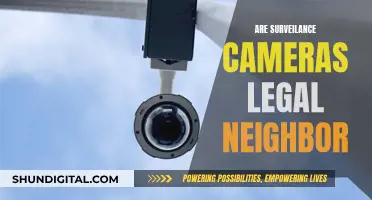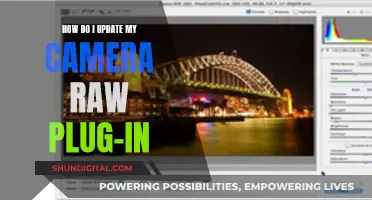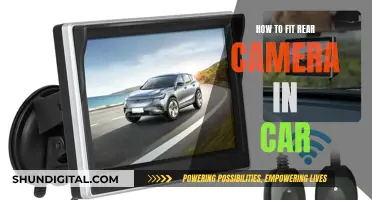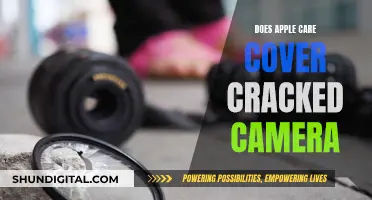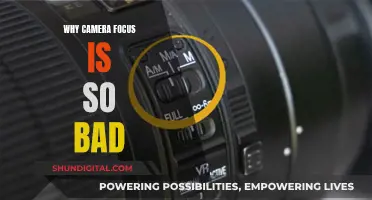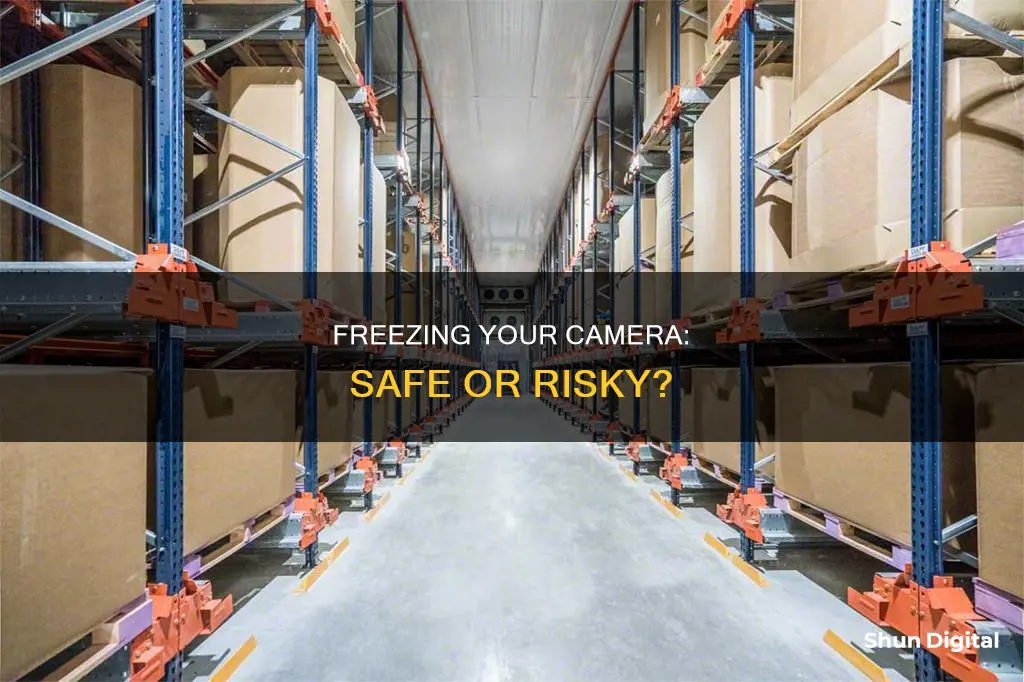
Storing your camera in a freezing car can be risky, but there are precautions you can take to reduce the chance of damage or theft.
The biggest issues with storing a camera in a freezing car are theft, battery life, and condensation. The cold itself is unlikely to damage the camera, but it will drain the battery quickly. To prevent theft, you can use a nondescript vehicle, tint the windows, and park in a secure location. To preserve battery life, you can keep the battery warm inside your coat and swap it out with a spare when it gets too cold. To prevent condensation, you can keep your camera in a sealed plastic bag with a silica gel desiccant bag.
| Characteristics | Values |
|---|---|
| Is it safe to store a camera in a freezing car? | It is not recommended, but possible. |
| How to protect a camera in a freezing car? | Take spare batteries, protect the camera from condensation, provide some padding, and avoid theft. |
| How to protect yourself when shooting in freezing weather? | Wear plenty of layers, include waterproofs, a hat, gloves, and bring a flask of hot drink with some snacks. |
What You'll Learn

The impact of cold on camera batteries
Cold temperatures can have a detrimental effect on camera batteries, reducing their performance and draining them more quickly. This can be a problem for photographers, who may find that their batteries deplete rapidly in cold conditions, sometimes after just a few shots.
Lithium-ion batteries, which are commonly used in cameras, experience a significant decrease in capacity when the temperature falls below freezing. In very cold weather, batteries produce electricity more slowly and less efficiently, and their output can drop by around 50%.
There are several strategies that photographers can employ to keep their batteries warm and extend their life:
- Bring extra batteries: It is advisable to carry multiple charged batteries when shooting in cold weather, as the cold will drain them faster no matter how warm you store them.
- Hand warmers: Inexpensive hand warmers can be placed directly on batteries and kept in a pocket to provide warmth.
- Keep batteries close to the body: Storing batteries in an inside coat pocket makes use of body heat to keep them warm.
- Do not warm batteries too quickly: Batteries should be warmed up slowly, using body heat or room temperature. Placing them too close to a powerful heat source, such as a fire or heater, can cause permanent damage.
- Recharge at night: Batteries can be recharged and stored overnight in a sleeping bag to provide a warm power source for the next day.
- Use a fanny pack: A small fanny pack worn under outer layers can be used to store batteries close to the body, providing easy access and consistent warmth.
The Intricate Process of Camera Drone Manufacturing
You may want to see also

Preventing condensation
Condensation occurs on your lens when there are dramatic changes in temperature and/or humidity, and your camera is exposed to these elements. While a few instances of condensation won't ruin your camera, it's still important to take measures to prevent this from happening too often. Here are some tips to prevent condensation on your camera:
Acclimation is Key
Before entering an environment with drastically different temperature and humidity levels, ensure your camera is securely stored in your camera bag with all zippers closed. The padding in most camera bags acts as insulation, helping to regulate the temperature and allowing your gear to acclimate slowly. Depending on the temperature difference and the size of your gear, you may need to leave your camera in the bag for several hours to fully acclimate.
Use Plastic Bags
Place your camera inside a plastic ziplock bag before stepping into a new environment. This provides an extra layer of protection and prevents the new air temperature from directly hitting your camera.
Maintain a Constant Temperature
If possible, try to keep your camera at a constant temperature. For example, if you're in a warm and humid environment, leave your camera outside in a safe place rather than bringing it into the room with you. Conversely, if you're in a cold environment, avoid storing your camera in a padded, thermally-insulated backpack. Instead, consider storing it in an aerated compartment, such as the trunk of your car.
Use Silica Gel Packs
Silica gel packs are great for absorbing moisture. Toss a few packs into your camera bag to help keep your gear dry.
Use a Rain Cover
If you're often shooting in humid environments, consider investing in a rain cover for your camera. This will help keep moisture away from your gear.
Avoid Wiping the Lens
If your lens has already fogged up, avoid the temptation to wipe it. This will only create streaks that you'll then have to remove. Instead, let the condensation dissipate naturally.
Use a Microfiber Cloth
To keep your camera and lens dry, periodically wipe them with a microfiber cloth.
Use a Hair Dryer
If your lens has fogged up, you can speed up the evaporation process by gently blowing on the lens or using a cordless hair dryer.
Mastering Cellphone Camera Focus: What You Need to Know
You may want to see also

Protecting your camera from theft
Extreme temperatures can affect your camera's battery life and performance, but that's not the only thing you should be concerned about when leaving your camera in your car. The bigger issue is the risk of theft. Here are some tips to help protect your camera from theft:
- Research your shooting locations: Before heading out, research the area to identify high-theft rates. Consider relocating your shoot or taking extra precautions when shooting in high-risk areas.
- Minimize your gear: Only bring what you need. Carrying a lot of gear will make you stand out to professional thieves looking for a big payday.
- Use inconspicuous camera bags: Avoid camera bags that are obviously for cameras, such as those with major camera brand names on them. Opt for a normal-looking messenger bag or backpack that blends in better.
- Conceal valuables: Don't use an obvious camera bag, and hide other gear like tripods. Wrap your tripod in a sweatshirt or place it in a nondescript bag to avoid drawing attention.
- Hide branding: If you have particularly valuable gear, cover the logos with tape to make it less obvious that you're carrying expensive equipment.
- Be discreet: Don't advertise that you're a photographer. If you're in a busy or potentially risky environment, keep your camera out of sight.
- Pick and choose where you carry your camera: If you're travelling through an area where you don't feel safe, leave your camera at the hotel or in a safe place. Only carry it where you expect to feel safe using it.
- Stay aware of your surroundings: It's easy to get caught up in your work, but make sure to keep checking your environment. If someone is paying you undue attention, walk away.
- Don't go out alone: Bring a friend or assistant with you when shooting. There is strength in numbers, and it can help ward off potential thieves.
- Insure your equipment: Check with your insurance agent to see if your camera is covered under your current policy. If not, consider adding protection, especially when travelling.
- Attach your camera to the bag: When you know you won't be taking the camera out for a while, attach the camera strap to the inside of the bag to make it harder for thieves to quickly grab your camera.
- Keep your camera bag with you at all times: Don't leave your camera bag unattended. Treat it like a stack of cash—you wouldn't leave money unattended, so do the same with your expensive equipment.
- Track your serial number: Save your camera's serial number in a safe place, not in your camera bag. In the event of theft, the police can use this to help find and recover your equipment.
- Avoid crowded areas: Don't carry your camera into crowded places where a thief could easily grab it from your bag or jostle you while taking it.
- Listen to your intuition: If something feels off about a place or situation, leave. Trust your instincts and don't take out your camera if you don't feel confident about it.
Charging Camera Batteries: Enercell's Quick Guide
You may want to see also

The effect of cold on camera equipment
Cold weather can have a significant impact on camera equipment, causing issues such as reduced battery life and condensation. However, with proper precautions, it is possible to mitigate these challenges and capture stunning winter images. Here are some detailed instructions to protect your camera in freezing temperatures:
Battery Care:
The battery is the most vulnerable component of your camera in cold weather. A temperature drop of 10 °C (18 °F) can halve your battery life, so carrying spare batteries is essential. Keep spare batteries warm inside your coat or pockets to maximise their performance. Additionally, turn off unnecessary camera features like the LCD screen, flash, and image stabilisation to conserve battery power.
Condensation Prevention:
Condensation is the leading cause of permanent damage to camera equipment in cold weather. It occurs when moving between cold and warm environments. To prevent this, gradually adjust your camera to temperature changes by leaving it in an intermediate space like a porch or car for an hour before transitioning. Additionally, use airtight bags like Ziplocs with silica gel packets to absorb any moisture that may form.
Protect from Drops and Breakage:
Cold temperatures can make plastic and glass more brittle, increasing the risk of breakage if your camera is dropped. Always use a padded camera bag or case to protect your equipment, and only remove your camera when you're ready to shoot. Utilise the neck or wrist strap to prevent accidental drops, especially if your hands are cold and wet or if you're wearing gloves.
Personal Comfort and Safety:
Don't forget to take care of yourself while braving the cold for the perfect shot! Wear plenty of layers, including waterproof clothing if there's snow or wet ground. A hat and gloves are essential, but consider fingerless gloves or mitten-style gloves with a foldable finger section for easier camera operation. A flask of hot drink and high-energy snacks will also help maintain your body temperature and energy levels.
Additional Tips:
- Keep your camera away from direct body heat to avoid condensation issues.
- Store your camera in a secure location, such as a locked car trunk, to reduce the risk of theft.
- Consider getting insurance for your camera equipment for added peace of mind.
Trail Camera Power: Battery or Solar?
You may want to see also

Keeping your camera warm
Leaving your camera in a freezing car can be risky. The extreme cold can drain your camera's battery and cause condensation to form on the camera and the front of the lens. However, there are several precautions you can take to keep your camera warm and protected from the cold.
Use Spare Batteries
The battery is the part of your camera that is most vulnerable to temperature changes. A drop in temperature can cause your battery to deplete much faster, so it is a good idea to carry at least one spare battery. Keep the spare battery warm in an inside pocket and swap batteries as needed. You can also keep your camera warm by turning off all unnecessary features, such as the LCD screen, flash, and image stabilisation.
Protect Your Camera from Condensation
Condensation is the biggest risk to your camera when moving from cold to warm environments. To prevent condensation, you can keep your camera in an airtight bag, such as a Ziploc bag, with a sachet of silica gel to absorb any moisture. You can also leave your camera in an intermediate environment, such as a porch, garage, or car, to allow it to adjust to temperature changes gradually.
Provide Some Padding
In cold weather, plastic and glass become more brittle, so it is important to protect your camera from breaking if you drop it. Keep your camera in a padded bag or case when not in use, and always use a neck or wrist strap when handling your camera to prevent drops.
Additional Tips
- Park your car in a secure location, such as a gated parking lot or a well-lit area with surveillance.
- Tint or paint your windows to prevent people from seeing what's inside your car.
- Use a hard-shell case to provide extra protection for your camera.
- Keep your camera and batteries warm by storing them inside your coat when not in use.
Loading Camera Adapters: A Simple Computer Guide
You may want to see also
Frequently asked questions
It's not recommended. Extreme cold is very hard on batteries and can cause permanent damage to your camera. It's also an open invitation to thieves.
This depends on the camera, but generally, anything below 0°C can cause issues.
Take spare batteries and keep them warm in an inside pocket. Turn off all unnecessary features and keep the camera in a padded bag when not in use.
Condensation occurs when moving from cold to warm environments. Gradually change temperatures by leaving your camera in an intermediate environment for an hour. You can also put your camera in an airtight bag with silica gel.
Cold weather will affect you as well as your camera, so dress appropriately and bring a hot drink and snacks to maintain your body temperature and energy levels.


